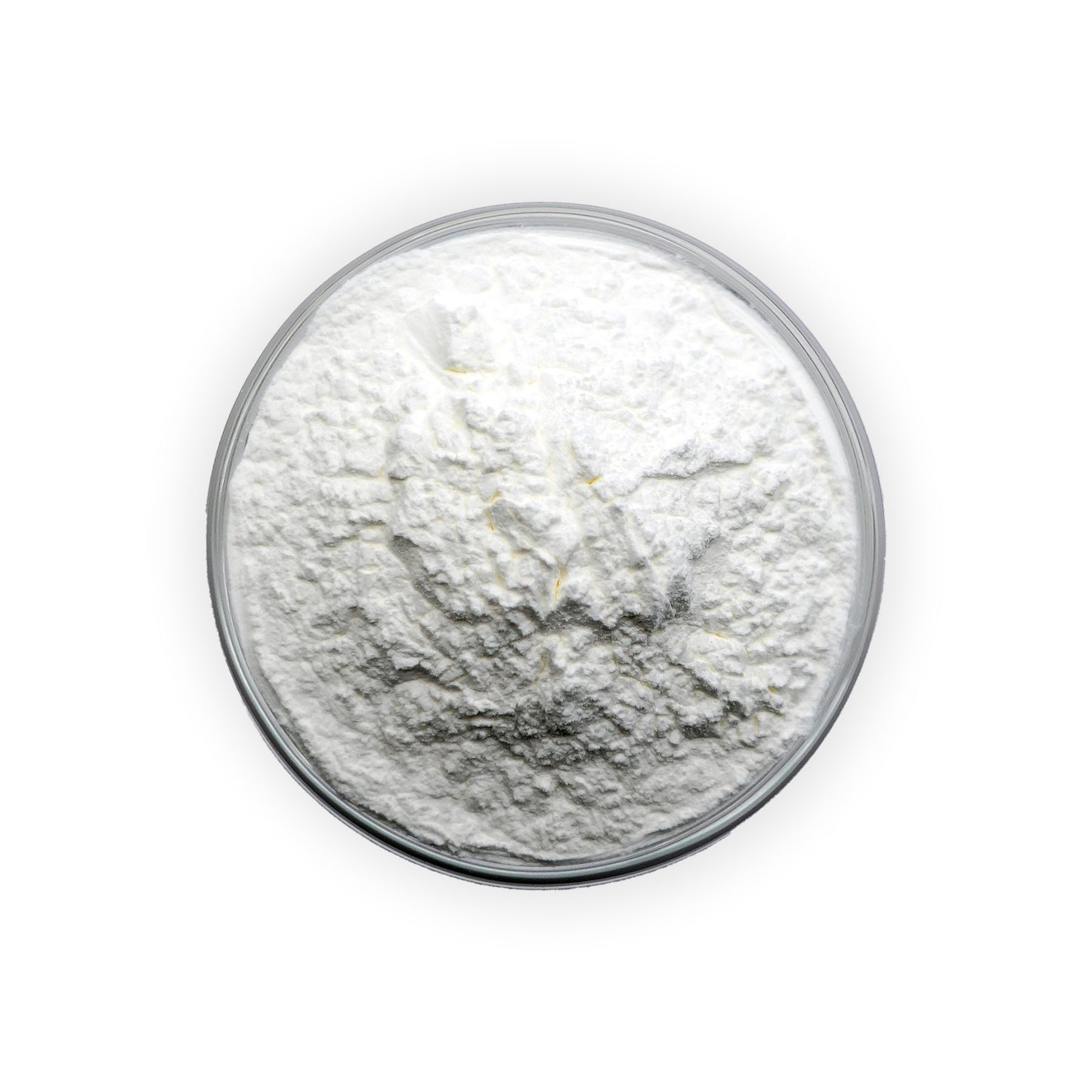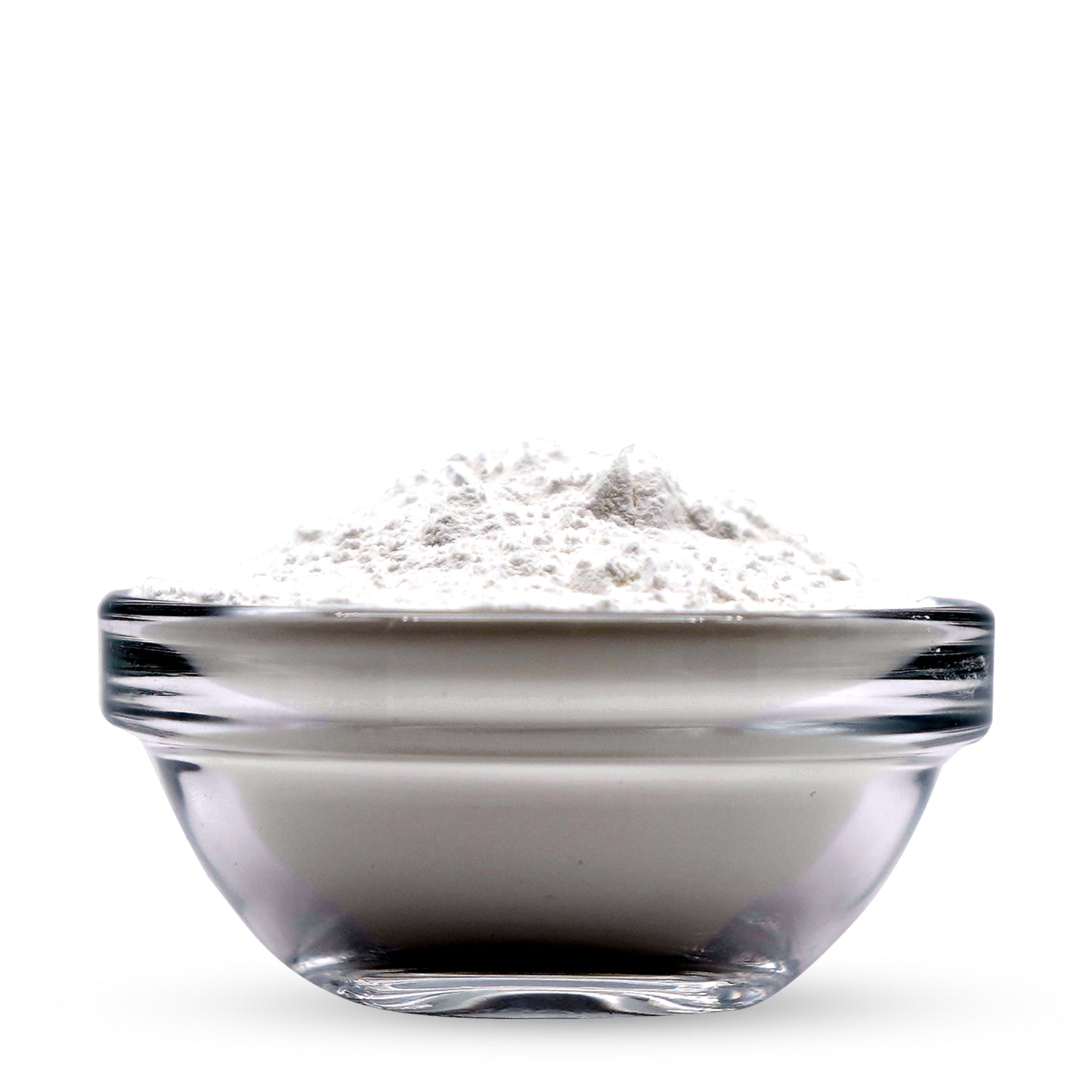



THE STORY OF ALUMINIUM STARCH OCTENYLSUCCINATE

Aluminum Starch Octenylsuccinate: The Invisible Touch of Soft-Matte Control
Aluminum Starch Octenylsuccinate is a modified plant-based starch widely used in cosmetics for oil absorption, mattifying effect, and velvety skin feel. It enhances product textures, reduces shine, and improves spreadability — making it a key ingredient in modern skincare, suncare, and color cosmetics.

From Natural Starch to High-Performance Powder
Derived from native plant starch (typically corn), the material undergoes controlled esterification with octenylsuccinic anhydride and aluminum salts. This chemical modification improves oil-binding capacity, flow properties, and stability — transforming simple starch into a functional, high-efficiency cosmetic polymer.

Mattify. Smooth. Enhance.
Aluminum Starch Octenylsuccinate provides multiple functional benefits:
✅ Absorbs excess oil without drying skin
✅ Creates a soft-focus matte finish
✅ Improves pressability and binding in powder products
✅ Enhances sensory feel — silky, non-tacky, lightweight
✅ Reduces greasiness in emulsions and sunscreens
Used in foundations, face powders, primers, deodorants, sunscreens, dry shampoos, and lotions.

Stable, Safe & Formulator-Friendly
Typical usage level: 1–20% depending on product type.
Compatible with oil-in-water and water-in-oil emulsions, hot and cold processing, and anhydrous systems.
Non-irritating, non-sensitizing, and globally compliant for cosmetic and personal-care use.
Store in cool, dry conditions to prevent clumping and maintain flowability.
Formulator’s Queries, We Answered
1. What is Aluminum Starch Octenylsuccinate used for in cosmetics?
Aluminum Starch Octenylsuccinate** is widely used as an oil-absorbing, mattifying, and texture-enhancing agent in personal care products. It helps improve the skin feel of creams, lotions, sunscreens, foundations, and powders by reducing greasiness and shine.
2. What is the CAS number and INCI name of this ingredient?
CAS Number: 9087-61-0
INCI Name: Aluminum Starch Octenylsuccinate
3. Is Aluminum Starch Octenylsuccinate safe for skin?
Yes, it is considered safe for topical use in cosmetic formulations. It is non-irritating and non-sensitizing under normal conditions of use and is approved by global regulatory bodies such as the EU Cosmetic Regulation and FDA for use in personal care.
4. What does Aluminum Starch Octenylsuccinate do in a formulation?
It acts as a:
Mattifying agent – absorbs excess oil and reduces skin shine
Thickener and texture modifier – improves spreadability and reduces tackiness
Anti-caking agent – keeps powders free-flowing
Sensory enhancer – provides a soft, silky, powdery feel on the skin
5. Is Aluminum Starch Octenylsuccinate natural or synthetic?
It is a modified natural starch, typically derived from corn, and chemically treated with octenylsuccinic anhydride and aluminum salts. While modified, it retains a natural origin base and is often used in "naturally-derived" claims.
6. Is Aluminum Starch Octenylsuccinate suitable for vegan products?
Yes, it contains no animal-derived components and is considered vegan-friendly, assuming no animal testing is involved in the supply chain.
7. Does this ingredient contain GMOs?
Aluminum Starch Octenylsuccinate is available in both GMO and non-GMO forms. For clean beauty or natural certifications, non-GMO sourced versions are recommended and readily available from verified suppliers.
8. In what types of products is Aluminum Starch Octenylsuccinate used?
Common applications include:
Facial powders and foundations
Sunscreens (for improved spread and reduced greasiness)
Dry shampoos
Mattifying creams and primers
Deodorants and antiperspirants
Lotions and emulsions
9. Are there any safety concerns or warnings with this ingredient?
Low risk when used as directed
May cause mild eye irritation if particles enter the eyes
Inhalation of large amounts of the fine powder during manufacturing should be avoided—proper protective equipment (PPE) is recommended in industrial settings
10. Is Aluminum Starch Octenylsuccinate compliant with California Proposition 65?
Yes, it is not listed under California Proposition 65 and contains no known carcinogens or reproductive toxins under regulated cosmetic use.






